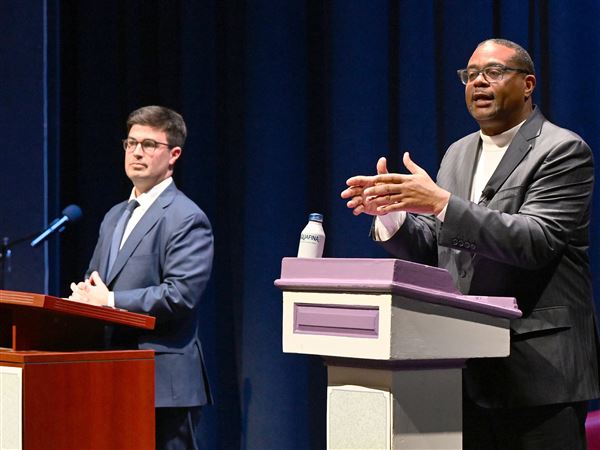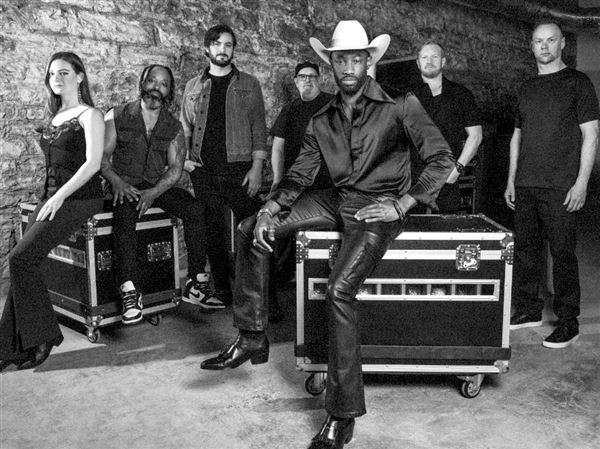HARRISBURG — A day after a federal judge struck down as unconstitutional a Pennsylvania law prohibiting same-sex marriage, Republican Gov. Tom Corbett said he would not appeal the decision because the outcome would be “extremely unlikely” to change in another court venue.
Same-sex couples already began to apply for marriage licenses — and get married — in Allegheny County and elsewhere across the commonwealth in the wake of Tuesday’s ruling.
READ about Allegheny County’s first same-sex married couple
“Given the high legal threshold set forth by [U.S. District Judge John E. Jones III] in this case, the case is extremely unlikely to succeed on appeal. Therefore, after review of the opinion and on the advice of my Commonwealth legal team, I have decided not to appeal Judge Jones’ decision,” Mr. Corbett’s office said in a statement issued Wednesday.
“As a Roman Catholic, the traditional teaching of my faith has not wavered. I continue to maintain the belief that marriage is between one man and one woman,” Mr. Corbett’s statement continued.
The governor declined to answer further questions from reporters at an event Wednesday in Washington County.
“I’m keeping the personal to myself, as I always do,” Mr. Corbett said, when pressed for his views.
In 18 other states, federal or state judges have knocked down bans on same-sex marriage, and all of those decisions — except one, in Oregon — are under appeal. Another 17 states and Washington, D.C., allow marriage for same-sex couples.
“We sincerely thank Gov. Corbett for allowing this judgment to stand,” said a statement from Ted Martin, executive director of Equality PA. “Words cannot express what this means to the loving couples and families in Pennsylvania who have waited so long to be recognized.”
A majority of Pennsylvanians — 56 percent — support gay marriage, said Terry Madonna, longtime director of Franklin & Marshall College’s poll of Pennsylvania voters.
The decision is a smart one, politically speaking, Mr. Madonna said, as it removes a potential hot-button issue that energizes the governor’s opponents.
The governor’s general counsel denied that politics played a role in Mr. Corbett’s decision.
“At this point, there’s no prospect for appeal. It’s all about the law; it’s not about politics,” said James Schultz, general counsel to Mr. Corbett.
And yet this decision is one in a series that seems to suggest a more moderate direction for the unpopular incumbent governor, who is set to face newly christened Democratic nominee Tom Wolf in the November election.
A few weeks ago, Mr. Corbett announced that his administration would not pursue an appeal of a controversial voter ID law popular among Republicans but decried by Democrats as hurting poor, elderly and minority voters.
Earlier this month, Mr. Corbett also said he would be open to a limited proposal to allow medical marijuana for some sick children, backing down from a past statement that he would veto medical marijuana legislation.
And earlier this year, he was the only Republican governor to take action to keep the “heat and eat” program, saving hundreds of thousands of families from cuts in the food stamp program in the federal farm bill.
“He can only win by expanding his reach,” Mr. Madonna said, of the governor’s prospects for re-election in November. “I guess he’s assuming that his base has nowhere to go.”
The news of Mr. Corbett’s decision was greeted with disappointment by some conservatives.
Michael Geer, president of the Pennsylvania Family Institute, which advocates for traditional marriage, questioned whether a federal judge — who serves by appointment rather than election — should have authority to “dictate the terms of marriage in the state of Pennsylvania.”
Steve Miskin, a spokesman for the state House Majority Republican Caucus, said a number of Republican representatives also have expressed concern about what some see as Mr. Corbett’s decision to let a federal judge dictate state policy.
Other Republicans said further action by the governor would have been pointless.
“The governor made the correct decision,” Senate Majority Leader Dominic Pileggi, R-Chester, said in an email. “The trend of court decisions is clear. … An appeal now would be a waste of taxpayer dollars.”
First Published: May 21, 2014, 7:25 p.m.
Updated: May 22, 2014, 3:18 a.m.















